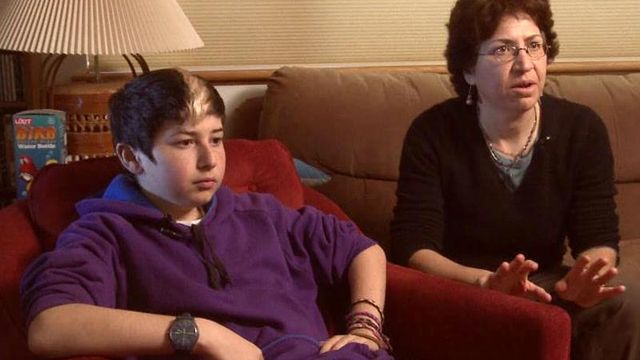Active late-night routines can disrupt healthy sleep patterns
Kids always want to stay up late. Whether they are watching television, staying on the computer or playing video games, kids are finding more and more ways to stay up. The problem, however, is that even after they do lay down, their brains may not be ready for sleep. That disconnect leads to tired eyes and frustrated parents.
Posted — UpdatedWhether they are watching television, staying on the computer or playing video games, kids are finding more and more ways to stay up.
The problem, however, is that even after they do lie down, their brains may not be ready for sleep. That disconnect leads to tired eyes and frustrated parents.
Kathy Kaufman, the mother of 13-year-old Skyler Narotsky, said bedtime struggles have been an issue for her son his whole life.
"He's always had trouble sort of calming down his thoughts at night and settling down," she said.
Skyler was often late to school and almost always tired when he got there. He even got sick more often.
"I'll have trouble getting to sleep, and I'll have trouble waking up," he said.
After years of struggling at bedtime, Kaufman took her son to the The University of North Carolina Sleep Disorders Center. Doctors spotted a common problem right away. Skyler's body clock had gotten shifted thanks to his late night activeness.
"In our adolescent group, probably the most common disorder we see is actually a shift in body clock," UNC Neurologist Dr. Bradley Vaughn said.
Four things -- late physical activity, irregular meal times, social interaction and bright light -- can throw off the body clock and prevent the brain from being ready for sleep. Computers and televisions are a common denominator for teens.
"I might be on Facebook or email," Skyler said.
But the problem isn't just the light or sound given off by electronics, it's what those things do to the brain once they are turned off.
Dr. Sujay Kansagra, a pediatric neurologist, said late-night activity creates all sorts of issues.
"And not just the light from these particular devices," Kansagra said. "But also the social interaction that you're often getting from these devices."
Kansagra said the extra light can tell the brain to stay alert and make falling asleep, staying asleep and sleeping soundly more difficult.
Skyler didn't have to undergo a sleep study for his issues, but he did need a major change in routine -- no television, computer or cellphone after dinner. He also takes a small dose of melatonin, a natural hormone that tells the brain to wind down, a few hours before bedtime.
"Melatonin helps us move our body clock, and so sometimes we will use that if the other conservative measures don't work," Vaughn said.
For Skyler, the small changes have worked wonders. He's getting more rest and even said he looks forward to going to bed.
"It's been a lot better than it was," he said. "You know, for the first time, I actually found myself wanting to go to bed."
People who struggle sleeping may be candidates for sleep studies, but talking with a neurologist first is the best way to figure out the problem and develop a plan to improve sleeping habits.
Another important consideration is the amount of sleep people need at different times in their life. Doctors recommend about 10 hours of sleep for people between 3 and 20. That number drops to nine hours for people in their 20s and down to eight for people 30 or older.
• Credits
Copyright 2024 by Capitol Broadcasting Company. All rights reserved. This material may not be published, broadcast, rewritten or redistributed.





